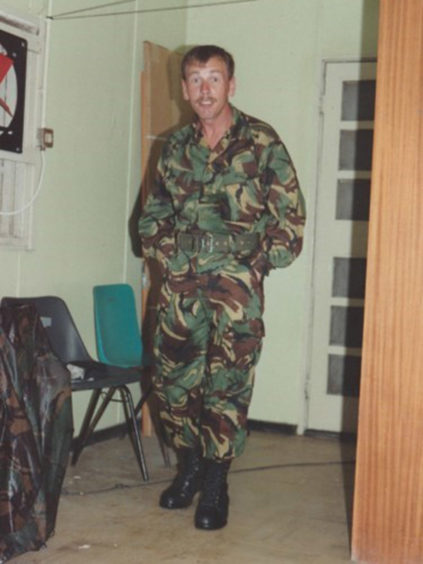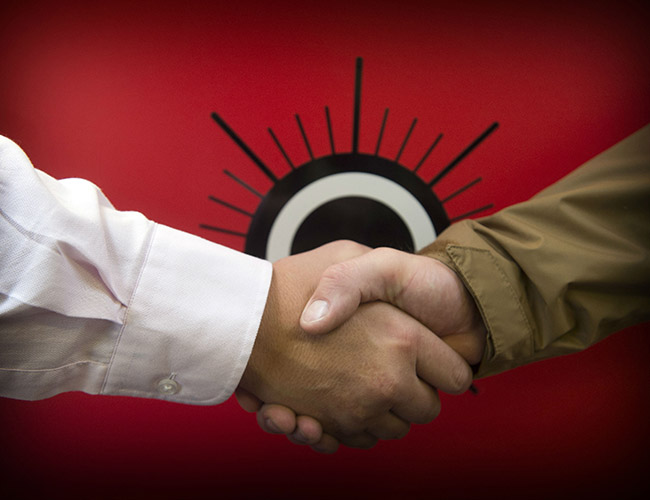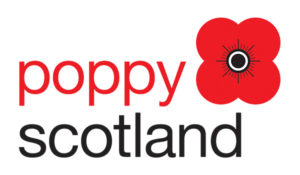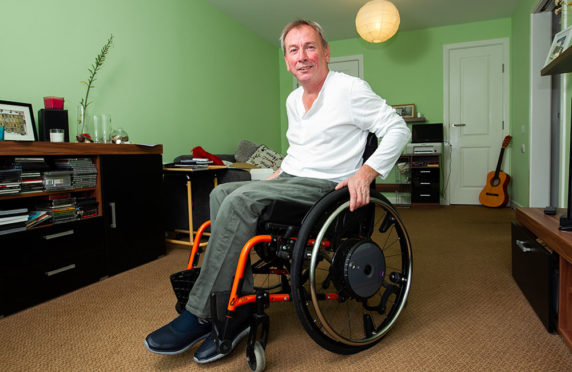
He served in the Army for 22 years, taking part in tours in the Falklands, Bosnia, Northern Ireland, and being among the first respondents to the horrific attack on the US embassy building in Nairobi which left 213 dead and thousands injured.
But, in a cruel twist of fate, it was while completing a seemingly innocuous task in the garden that Paul Kerr suffered an injury that would leave him unable to walk and uncertain of where to turn for help – until Poppyscotland stepped in.
Best known for running the iconic Scottish Poppy Appeal, the Armed Forces charity works all-year-round to help veterans or those who are still serving and their families receive the care and support they urgently need and deserve – but, like Paul, might feel reluctant to ask for.
He joined the Army aged 21, determined to make a life for himself away from an area of high unemployment and the tensions at home in East Kilbride.
The veteran, now 58, explained: “My father was a labourer and he was laid off in his fifties. I didn’t have a job either and there was friction in the family, so I decided to do something about it.
“Things are very different now, but, in those days during training they would try and break you down, get the civvy out of you, then build you up again. But I stuck to my guns and got through.”
After being based in Gloucestershire for three years where he met his now ex-wife, Paul left for his first tour in the Falkland Islands.
The dad-of-two recalled: “Hostilities had ceased, but there was a clear-up job to do. As we flew in we saw a lot of shot-down aircraft, and on the ground the feeling of conflict hung heavy in the air.
“After all the training, suddenly what you’re doing serves a purpose. For a young guy, it’s a bit of a buzz.”
During his time in the Forces, Paul was posted to Belgium and Germany, and carried out two tours of Bosnia. After serving in Northern Ireland for two years, his next stop was the Kenyan capital of Nairobi.
“I went to Nairobi as a Sergeant and thought it would be six months in the sun, but, on August 7, 1998, I was in the guard room prepping for an entertainment night in the mess (social area) and a message came through that there had been an explosion at the American Embassy.
“When we arrived it was carnage. There were people running around screaming. We set up a makeshift search and rescue centre and, for three days, we were dragging dead and dying out of the building.”
After 22 years in the Army and a long absence away from home and his young sons, now aged 27 and 24, Paul retired.
“I could have been commissioned as a captain and served until 55, but I wanted to go back to my family. I’d missed so much with them.”
But adjusting to civilian life did not prove easy, something that is not uncommon for servicemen and women who may not always be aware that help is available covering all aspects of life – from finding a job and housing to mental health support.
And having shown courage and resilience in serving their country, many can often feel reluctant to ‘call for backup’, something Poppyscotland is encouraging them to do.
Paul recalled: “It was a train crash. My wife and I had been apart so long that it was hard to adjust.”
After separating, Paul moved back to Scotland, settling in Dunoon where he worked in a call centre. By 2012, he had retired and enjoyed helping out his elderly neighbours in the tenement flat he was living in. Then, five years ago on a peaceful summer’s afternoon in August, his quiet existence was shattered.
“I was standing on a slope cutting back bushes when I slipped and fell 20 feet.
“I don’t remember falling, just looking up and wondering how I got there. When I tried to move my legs were numb and my wrists were smashed up. I was taken to hospital by helicopter and told I had broken at least 10 bones and suffered permanent damage to my spinal cord.
“All those years in the Army and then this happened when I was gardening.”
After spending six months in a specialist unit, Paul moved to a ground-floor flat in Glasgow alongside other veterans. Confined to a wheelchair, the enormity of his situation soon became clear.
“In hospital you’re in a bubble, looked after 24 hours a day. When you get discharged it feels like no one wants to know. I’m the kind of person that wants to do things for myself and not ask for help.”
But there are organisations who want to know, as Paul found when he was referred to Poppyscotland. The charity sent an occupational therapist out to assess his needs, and funding was provided for power assist wheels for his wheelchair – something that has made the world of difference to his daily life.
Now Paul is hoping to volunteer with Poppyscotland providing advice and support to other veterans – and is encouraging them to come forward when they need help and not feel they have to fight personal battles alone.
“I thought they were just about the Poppy Appeal, and I was totally unaware of all the work they do with veterans and their families around the country.
“We all need support in some way or another, but it can be difficult for veterans to ask for help because they have been the ones to give it to others.
“When you join the Army, leaving your wife on her own to bring up two kids, it’s a big sacrifice, a big give. I don’t think that gets told enough. It’s not just the folks who go out and do the job in uniform; it’s what they’re leaving behind, too.”
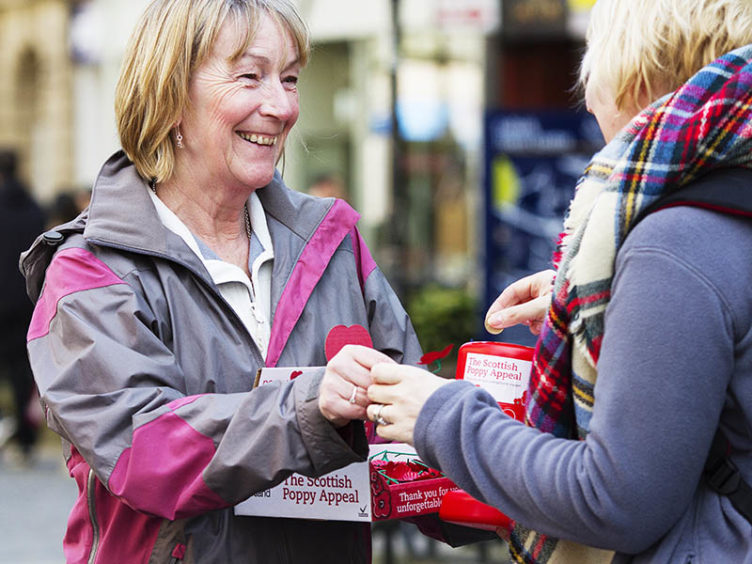
- Poppyscotland provides tailored funding and advice to thousands of ex-Servicemen and ex-Servicewomen. Help can be offered at any age and across many aspects of life, including with employment, mobility, respite, housing and mental health. If you, a friend or loved one could benefit from support, you can get in touch through the website by clicking here or by calling 0131 550 1557.

Enjoy the convenience of having The Sunday Post delivered as a digital ePaper straight to your smartphone, tablet or computer.
Subscribe for only £5.49 a month and enjoy all the benefits of the printed paper as a digital replica.
Subscribe